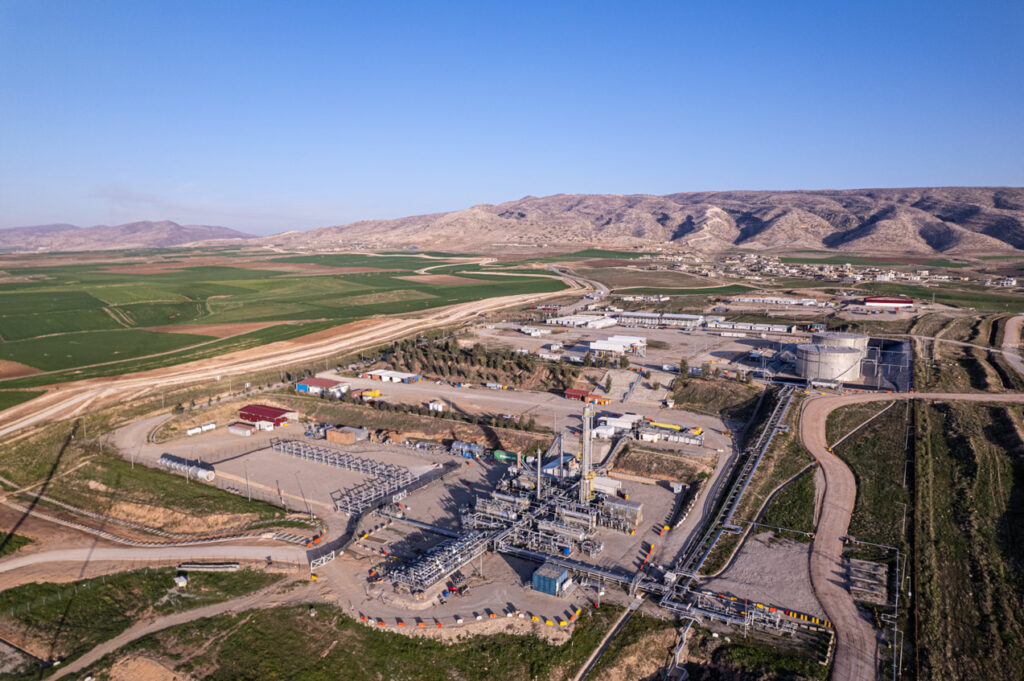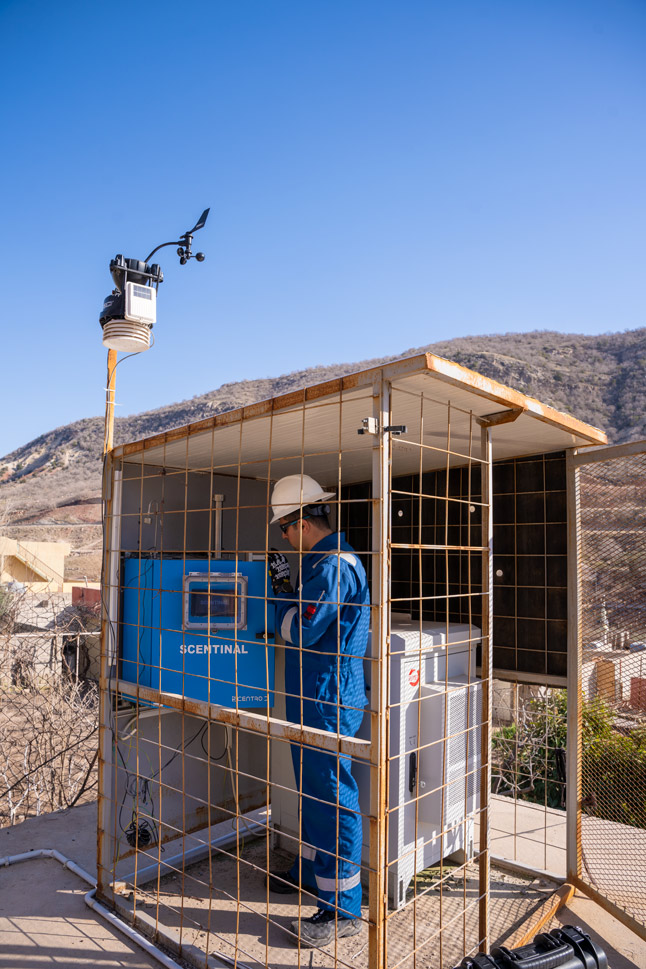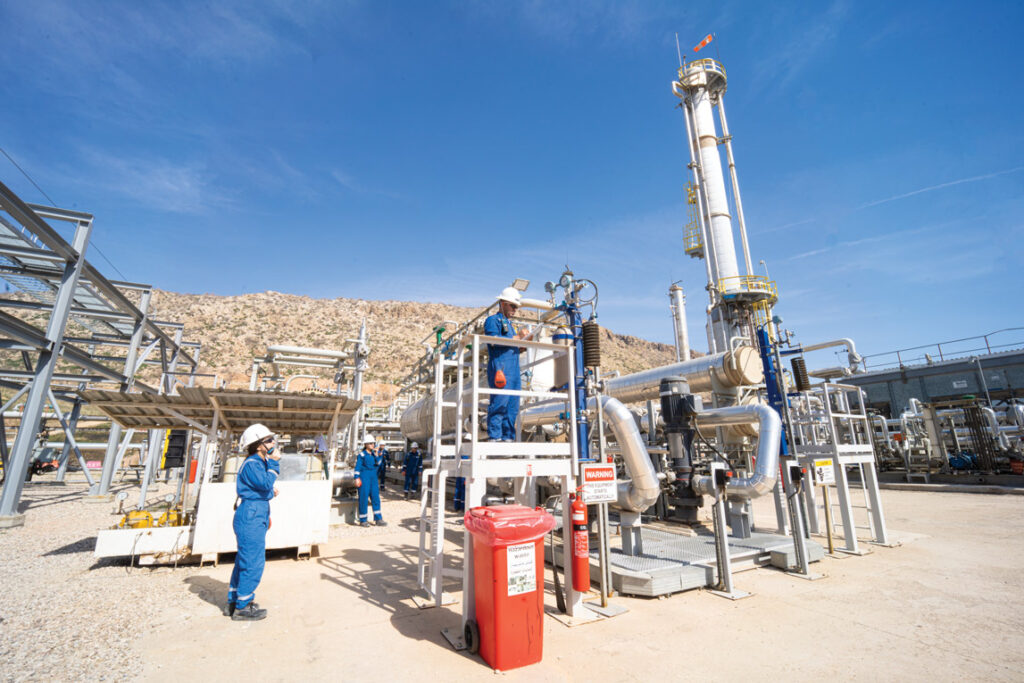This website uses cookies so that we can provide you with the best user experience possible. Cookie information is stored in your browser and performs functions such as recognising you when you return to our website and helping our team to understand which sections of the website you find most interesting and useful.

ESG
Environment
Our focus
Energy security and affordability are fundamental for our future. At the same time, we recognise the urgent need to deliver the world’s energy requirements in a way that addresses climate‑related risks and opportunities and minimises our impact on the environment. For GKP, this means taking ambitious steps to reduce the carbon intensity of our operational activities, aligning our disclosures with TCFD recommendations, monitoring our emissions footprint across scopes 1, 2 and 3, protecting air quality around our operations and managing the impact of our facilities on the local environment.
Addressing climate-related risks and opportunities
As part of our focus on addressing climate-related risks and opportunities, we are focused on reducing the carbon footprint of our operations.
Our primary objective is to reduce our scope 1 emissions intensity by >50% by 2025, compared to our original 2020 baseline of 38 kgCO2e/bbl (with the reference to scope 2 emissions eliminated following recalculation). This is dependent on the timely sanction and implementation of a Gas Management Plan (“GMP”) and subsequent elimination of almost all of our routine flaring. The Gas Management Plan would also significantly reduce our sulphur dioxide emissions.
In addition to the GMP, we are also exploring the viability of a number of other decarbonisation projects. In 2022, we carried out a detailed assessment of these opportunities, including scenario analysis. Following this exercise, we decided to progress the elimination of methane emissions from the venting of our storage tanks.

Consistency with Task Force on Climate-related Financial Disclosures recommendations
We started applying the Task Force on Climate-related Financial Disclosures (“TCFD”) recommendations in 2020 and, as of 2022, GKP’s disclosures are fully consistent with all 11 recommendations of the TCFD framework, as well as the additional disclosure recommendations specific to oil and gas companies. Our full disclosure can be found in our TCFD report on pages 52 to 65 of the 2022 Annual Report & Accounts.
Protecting air quality
It is imperative we adopt a robust air quality monitoring programme to avoid any negative impacts on our local communities. In 2022, our air quality performance continued to be within Kurdish regulatory limits.
We monitor air quality in a variety of ways, including stationary field monitoring, handheld Photo‑ionisation Detectors (“PIDs”), gas surveys and, for the first time in 2022, satellite monitoring.
In 2023, we are planning to extend our air quality monitoring programme to detect and monitor methane and other fugitive emissions across our production facilities and wells, with the goal to reduce or eliminate emissions at source. Fugitive emissions are a very small proportion of existing scope 1 emissions and we would expect this to remain similar following implementation of the programme.

Facility impact management
We undertake detailed facility impact management studies prior to commencing any site work. Before facilities or access roads are built, flowlines installed or wells drilled, GKP conducts a thorough environmental and social impact assessment (“ESIA”) as part of our project design phase.
In 2022, two ESIAs for the expansion of our two production facilities and one ESIA for the Gas Management Plan were initiated. All three ESIAs were submitted for approval by the Ministry of Natural Resources.
Soil remediation
We aim to avoid any instances of contaminated soil, surface water and groundwater resulting from our operations to prevent any risks to public health and safety or our impact on the environment. As part of our standard procedure, all waste drilling cuttings and fluids are managed in line with Kurdistan legislation and international standards. We also ensure that any pits that are excavated next to well pads to hold drilling fluid are remediated after any drilling operations are completed.
Waste management
Gulf Keystone maintains high standards of waste management in the Shaikan Field and our offices. We sort our waste into four categories:
- liquid hazardous waste: includes waste crude oil, contaminated water and drilling fluids;
- liquid non-hazardous waste: includes uncontaminated water;
- solid hazardous waste: includes drilling cuttings, chemicals and medical waste; and
- solid non-hazardous waste: includes food waste, packaging, glass and metals.
In 2022, we recycled 100% of our liquid hazardous waste, 100% of our liquid non-hazardous waste, 86% of our solid hazardous waste and 92% of our solid non-hazardous waste. The increase in the recycling rate of our solid hazardous waste from 28% in 2021 to 86% in 2022 was primarily driven by the increased recycling of our drilling cuttings.

Water management
With our operations situated in a region that is prone to drought, having a strong water and wastewater management process in place is a key consideration – not only for our own business but for our land and local communities.
The majority of our water use, measured as water withdrawn, is associated with our drilling activities. The remainder is used for operational requirements and as drinking water in our production facility camps. Water at the camps is supplied via water wells, which are analysed monthly and chlorinated weekly to ensure they meet World Health Organization (“WHO”) guidelines.
In 2022, Gulf Keystone used around 9% less water than in 2021. This was mainly achieved by closely monitoring the consumption and storage of fresh water during our drilling activities to ensure efficient usage. The significant increase in water withdrawn in 2021 relative to 2020 was primarily driven by the resumption of drilling activities and more accurate data measurement following the installation of metering devices at our production facilities.
Wastewater management
Our sewage wastewater is continuously treated in sewage treatment units, with samples taken from the inlet and outlet streams to ensure the units are operating efficiently and that the quality of the effluent meets WHO guidelines. In 2022, an additional sewage treatment unit was installed at our construction camp, and looking ahead, we are planning to reuse treated sewage water from our operations for the irrigation of our facilities.
Any wastewater from drilling activities with oil traces is collected and transported via vacuum trucks to an MNR-approved refinery that specialises in recycling oil and lubricants of different grades from waste containing oil and/or hydrocarbons.
